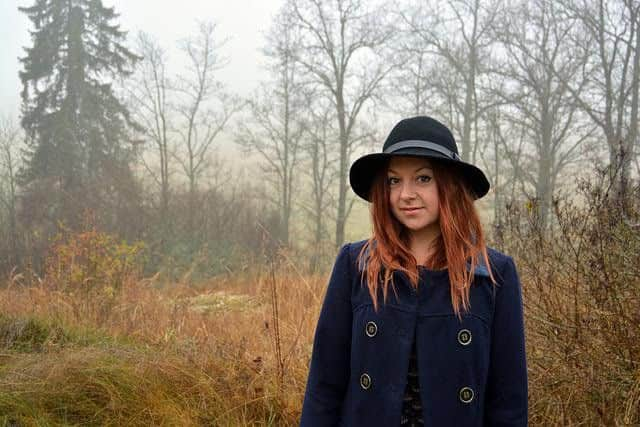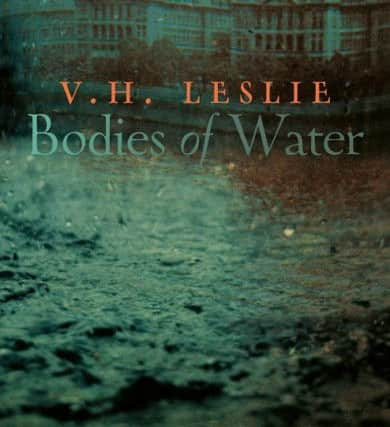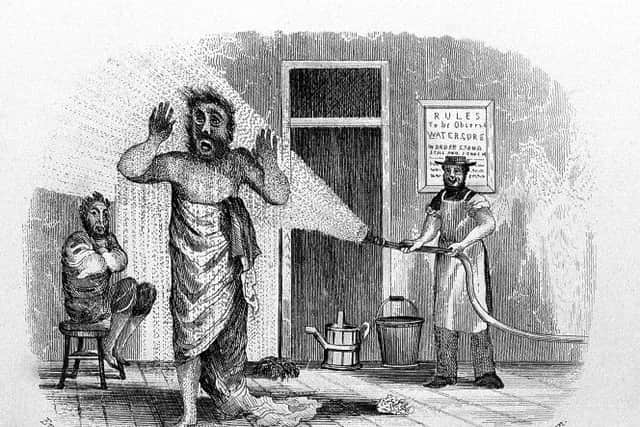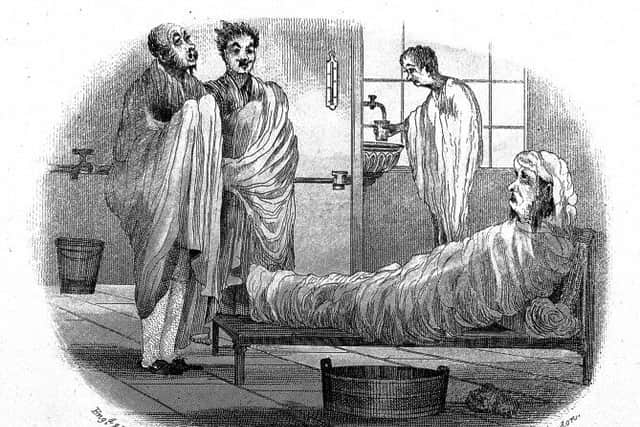Water women and hydropathy in new novel
This article contains affiliate links. We may earn a small commission on items purchased through this article, but that does not affect our editorial judgement.


Victoria Leslie, who writes under the name V.H. Leslie, is currently studying for a PhD in nineteenth century representations of water women, and will be releasing her novel, ‘Bodies of Water’, later this year.
Bodies of Water tells the story of Evelyn, who suffers a mental breakdown after caring for fallen women in Victorian London and finds herself treated by the ‘Water Doctors’ at a hydropathy sanatorium.
Advertisement
Hide AdAdvertisement
Hide AdVictoria said: “While undertaking my research, I spotted that there seems to be a lot of connections between women and water during the nineteenh century -for example, in the artwork of the Pre-Raphaelites.


“You get the temptresses and the mythical women in folklore and fiction, but you also get clinical images of women who have been pulled from the water of the Thames after attempting suicide. My research took me down into venereal disease and prostitution, the legal procedures, the ‘steel rape’ policy - the police were allowed to arrest and examine any women that they suspected of prostitution. It’s about an attack on women’s bodies and the connection with the water.
“So,I was researching the fallen woman and the abundance of women who committed suicide in the Thames, and alongside that, I began looking at the water cure.
“Bodies of Water is partially set in a Victorian water cure centre, but there’s also a modern setting - this feminine legacy which resides in the water from the past, without giving too much away!
Advertisement
Hide AdAdvertisement
Hide Ad“I looked at hydropathy, which was hydrotherapy before it became hydrotherapy. Hydropathy was a really popular thing in the continent initially, and there were all these debates about whether hot water or cold water was better to use.


“My research focused on these therapetuctic trends, and they were attended by all sorts of important figures. Charles Dickens went there, and a few other celebrities from the Victroian age would go and relax in these water spas. Typically, you would be woken up quite early in the morning, and you would be given a bland breakfast, you would be drinking lots of water, you would then be cocooned up in sheets, and throughout the day you’d have a variety of baths.
“There was a lot of science behind each of these treatments that you’d go through - the level of water, the doctor would be assessing if you were sweating something out - it was quite complex! They also had compresses that they would put around your body, including one called the Neptune’s Girdle which would go around your stomach. They’d go for lots of walks, no wine or alcohol, hardly any red meat or anything that was too indulgent. The modern line of thought is that because hygiene was so awful, these baths were actually a really good thing!”
Alongside her creative writing, Victoria is also researching literature and folklore which explores water women.
Advertisement
Hide AdAdvertisement
Hide AdShe said: “I’m identifying that I’m really interested in Northern mythology and stories, particularly from Ireland and the Scottish Islands, to Shetland and Orkney, and then onto places like Norway. Although, you find you’ll uncover something else and you’ll want to follow that - I was at the British Library the other day, and they were showing us the prints of fountains of Rome, and I’d never really thought about water in that sense. It’s a control over water, to project water upwards is a feat of engineering.”


Victoria chose to study at the University of Chichester because of the area’s connection with folklore.
She said: “I’ve just started my PhD, and I’m working with Professor Bill Gray, who is an expert in fairy tales and folklore. I’m also working with Dr Hugh Dunkerley, who teaches creative writing. There was a connection here with what I wanted to study as this is where the Sussex Centre for Folklore, Fairytale and Fantasy is based.
“It’s also an established centre for creative writing. Being an avid follower of creative writing success stories, I was familiar with lots of people who were studying here and lecturing here.
Advertisement
Hide AdAdvertisement
Hide Ad“Chichester’s also a great place to be interdisciplinary. I’m doing a music collaboration, as there were a lot of water women celebrated in music at the time, in folk ballads and music, but also in the nineteenth century, in Dvořák. Operas were being written about figures like Undine, The Little Mermaid. It also relates to the figure of the water women, who was celebrated for her song.”
Bodies of Water will be available in May from all good bookshops.
Don’t miss out on all the latest breaking news where you live.
Here are four ways you can be sure you’ll be amongst the first to know what’s going on.
1) Make our website your homepage at www.chichester.co.uk/
Advertisement
Hide AdAdvertisement
Hide Ad2) Like our Facebook page at www.facebook.com/ChichesterObserver
3) Follow us on Twitter @Chiobserver
4) Register with us by clicking on ‘sign in’ (top right corner). You can then receive our daily newsletter AND add your point of view to stories that you read here.
And do share with your family and friends - so they don’t miss out!
The Chichester Observer - always the first with your local news.
Be part of it.